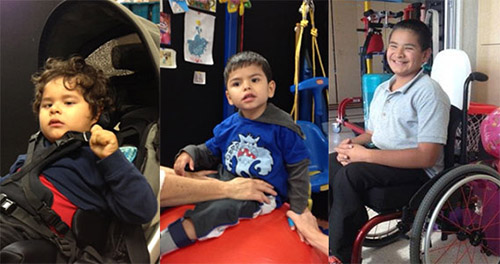Emergency Preparedness for Families of Children with Special Needs

Emergency Preparedness: Earthquakes, fires, landslides and flooding are on everybody's mind in California. But even though we know what CAN happen, are we prepared? Do you know what to do?
For families of children with special needs knowing how to respond is critical. This guide will focus on preparing to meet your child's needs in case of an emergency!
Post emergency phone numbers by phones!
Teach everyone how to use 911!
Disaster Preparation Checklist
- A current care plan & list of medications from your child's physician
- An emergency information form filled out on your child
- Back up systems or plans for medical equipment that require electricity - notify your power company
- If your child uses a wheelchair, have more than one accessible exit from your home in case the main exit gets blocked in a disaster
- Discussed with your child's doctor the best place for him/her in the event of a disaster
- Emergency management team and neighbors are aware of your child's special needs
- An emergency plan for your child while he/she is at school, day care or church
- A minimum of a two week supply of medications & supplies for your child, such as:
- dressing materials, nasal cannulas, suction catheters
- generator or battery backup for all electrical medical equipment
- copies of prescriptions for medical equipment, supplies, and medications
- extra contact lenses and supplies of glasses
- extra batteries for hearing aids, communication devices
- special dietary foods and supplies
- manual wheelchairs and other necessary equipment
Your Child's Special Needs
Make sure your child has a medical alert. This is especially important if they have a need that may not be obvious, such as an allergy or a chronic health condition, i.e. diabetes.
If possible, teach your child to answer questions about their condition and treatment as soon as they are old enough. This will help ensure that others can care for them in your absence.
Teach your child to recognize and accept help from emergency officials. Make sure your child can recognize emergency officials, such as police, Red Cross, firemen, and others. Help them under-stand that if they are alone they can go to these people for help. It is important they he/she learns to not be afraid and hide from emergency officials.
Some of the general emergency supplies you'll need:
- 2 quarts drinking water per person per day
- 2 quarts water for household prep per day
- 3-day supply of nonperishable foods that don't need refrigeration
- First aid kit
- 2-week supply of formula/powdered milk and diapers for kids
- Flashlight